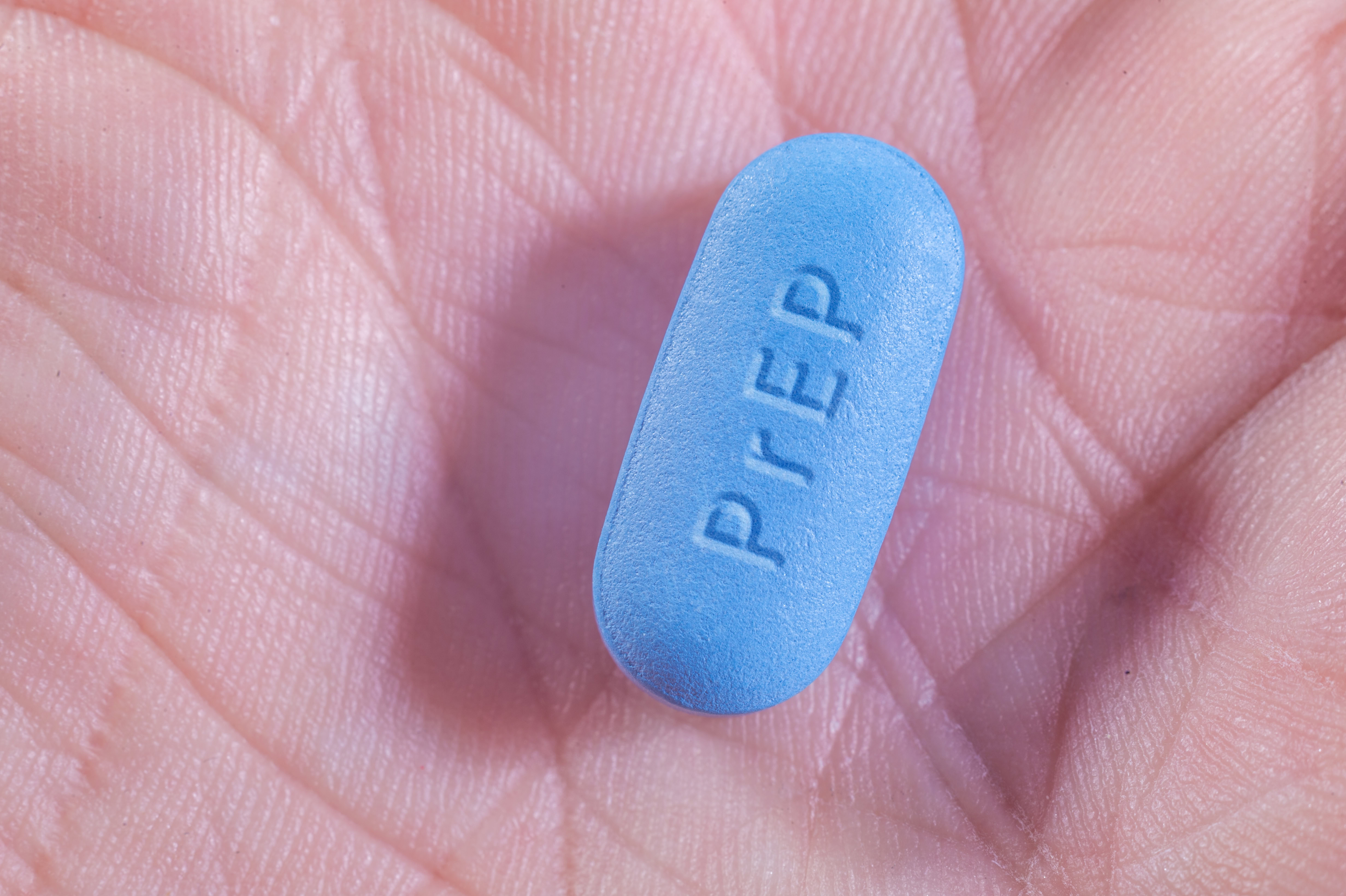
Outrage as PrEP drug Truvada denied access to PBS

HIV advocates and health organisations are outraged the Pharmaceutical Benefits Advisory Committee (PBAC) has rejected submissions to add Truvada as use for PrEP to the Pharmaceutical Benefits Scheme (PBS).
They are strongly urging the pharmaceutical company who license the drug to try again as quickly as possible.
The PBAC today confirmed it would not recommend to the government that Truvada be made available at a subsidised rate on the PBS. Cost-effectiveness was cited as one reason for PBAC’s decision, which means Gilead Sciences would have to make a full resubmission later this year for PrEP to be reconsidered at a March 2017 PBAC meeting.
Victorian AIDS Council CEO Simon Ruth described it as an incredibly disappointing outcome that means Australians will have to wait even longer for access to the HIV prevention tool.
“Every year 1200 Australians contract HIV, and PrEP could substantially reduce this number. It is distressing to see access to PrEP for the people who need it most held back by a decision like this,” he said.
The news is seen as a massive setback to ending HIV in Australia by 2020, delaying Truvada being listed on the PBS by at least 18 months.
But Australian Federation of AIDS Organisations (AFAO) deputy chief officer Heath Paynter said his organisation would work with state and territory governments to ensure people across the country would be able to access PrEP.
“We’re very disappointed with this decision, but we have to respect PBAC, they’re an independent authority whose procedures are critical for funding drugs in Australia,” he said.
“The material provided to PBAC by Gilead was not appropriate to enable them to recommend Truvada to be listed on the PBS.”
Truvada is an antiretroviral drug used by HIV negative people as part of the HIV preventative pre-exposure prophylaxis (PrEP) medical treatment. It is not currently available on the PBS, effectively costing people hundreds of dollars per prescription, or forcing them to import the drug from overseas. But the New South Wales, Queensland and Victorian governments established wide-ranging PrEP medical trials to make the treatment available for thousands of people at high risk of acquiring HIV.
In May the Therapeutic Goods Administration (TGA) approved Truvada for use as PrEP in Australia and the next step to make Truvada available to those who need it was for PBAC to recommend that the government subsidise the drug through the PBS. If PBAC had approved Truvada it would still need to be approved by the Federal Government Cabinet, which could take up to 12 months from a PBAC endorsement.
In the minutes of its recent meeting, PBAC “noted that the efficacy of Truvada was highly dependent on adherence, and that it is not clear if subjects at high risk of contracting HIV due to self-reported low adherence to safer sex practices would also have lower adherence to medication.”
“This statement is insulting, unfair, and paternalistic. It is a given that for medications to work properly, they must be taken as directed,” Nic Holas, co-founder, the Institute of Many (TIM) – a peer run community of people living with HIV – said.
“The reasons why a person may have a ‘low adherence to safer sex practices’ are complex and varied, and should not be the basis for withholding PrEP as a necessary addition to the prevention toolkit.”
VAC’s Simon Ruth added: “Drawing a comparison between risk behaviour and adherence to medication is illogical. It is wrong and offensive to assume that gay men would not be taking every measure to protect themselves when it comes to HIV, and we view PrEP as the most powerful tool for doing that.
“PrEP demonstration projects have shown gay men’s adherence to PrEP is extremely high, and comments like this are unhelpful, stigmatising and homophobic.”
The federal Department of Health told Star Observer that it understood the decision would disappoint many people.
“However, the PBAC has to take into account a range of factors about recommending subsidy for all medications and, in this case, the PBAC was not able to recommend Truvada because, among other things, it considered; the price requested by the sponsor was far too high and the sponsor’s attempt to limit PBS subsidy of Truvada to a smaller, high-risk subset of the whole ‘at risk’ population was not feasible and would not be acceptable to prescribers or consumers,” a spokeswoman for the department said.
“In its deliberations the PBAC indicated a substantial price reduction would be needed to make Truvada available for PrEP for the whole ‘at risk’ population but noted that Truvada for PrEP could represent value for money in the broader population at a substantially lower price.”
Living Positive Victoria CEO Brent Allan said Gilead needs to resubmit its application to PBAC as soon as possible.
“It would be something Gilead Sciences needs to commit to doing sooner rather than later. PBAC doesn’t often approve drugs on the basis of costs,” he said.
“This (HIV) is an infectious disease and it won’t just affect a single person. It (Truvada) stops the cascade effect, because stopping one infection stops many more.
“As someone living with HIV, I feel that it’s inexcusable that a government or business would hold back the medication that we know could stop transmission.”
An opportunity to take advantage of the most substantial breakthrough in HIV prevention in decades has been missed, according to the president of NSW’s sexual health organisation ACON, Justin Koonin. He said the onus would now be back on Gilead Sciences to submit a new application to PBAC that strengthens the cost-effectiveness argument for Truvada.
“ACON has strongly advocated for PrEP to be available to those who would benefit most from it – and a substantial part of that access is affordability. That is why we are very disappointed in this decision,” he said.
“We strongly encourage Gilead to work expediently with others in the HIV sector to act in interests of public health and put forward a submission that will facilitate national access to this drug.”
A spokesperson for Gilead Sciences in Australia said it is reviewing the PBAC’s feedback and is working to address the questions it has raised, with a view to potentially making another submission.
“Following discussions with the PBAC, we understand it is considering convening a stakeholder meeting, which would include healthcare professionals and patient organisations, to determine the way forward on this important issue. Gilead looks forward to the opportunity to participate in this,” the spokesperson said.
“We see Truvada for PrEP in combination with safer sex practices, as playing a role in helping the Australian Government achieve its goal of virtually eliminating HIV transmissions in Australia by 2020. Gilead continues to support researchers and the community in assessing the effectiveness of PrEP in combination with safer sex practices through demonstration projects and clinical trials in NSW, Queensland and Victoria.”
Phil Joffe, who runs PrEPAccessNow a community initiative which imports generic brands of Truvada from southern Africa and helps to subsidise PrEP for members who cannot afford to pay for their own prescription, said it is absurd the PBAC has decided not to add Truvada to the PBS.
“The Australian annual rate of new HIV infections has not dropped for a number of years… PBAC is wasting time by not approving the best opportunity available to eliminate new infections,” Joffe said.
“The Government has a responsibility to provide the medication to those seeking to take control of their sexual health; and not listing Truvada as PrEP on the PBS displays a total lack of commitment to ending new HIV infections on the part of the Federal Government.”
Holas said PBAC’s decision would come as a huge disappointment to those Australians who cannot get on the PrEP trials and those who cannot afford to self-import the generic version of PrEP into the country.
“Until such a time that PrEP is accessible to all people in Australia who need it, not just want it, it will not be an effective form of HIV prevention at a community-wide level,” Holas said.
“We’re calling on Gilead to re-apply to PBAC this November with a revised financial model, one that is based on appropriate estimations and not broad figures, or worse, shareholder profits. Like many HIV-related drugs, the issue around accessing Truvada is not the cost of manufacturing it, but rather the price imposed by Gilead.
“In Australia, we are somewhat sheltered from the world of pharma greed thanks to universal healthcare and government regulation.
“Today’s events are a reminder that Australia is part of the global fight to end HIV/AIDS, which is far from over. HIV/AIDS is an epidemic about people, not profits.”









